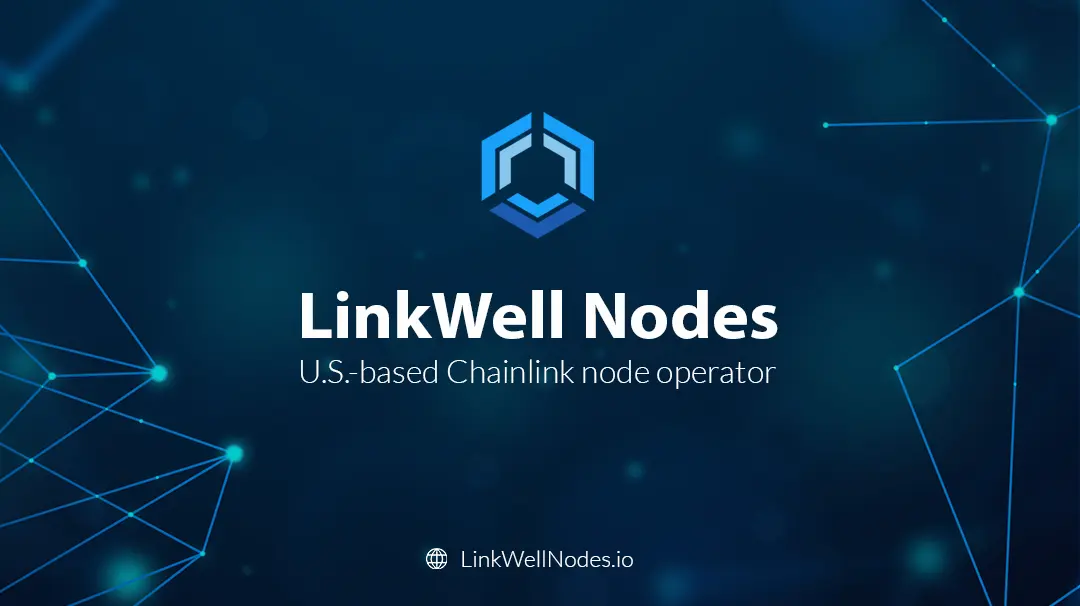Finding a Chainlink Oracle: A Guide for Web3 Developers
Where to find a Chainlink node operator, oracle address, and job ID for writing real-world data to your Web3 application.
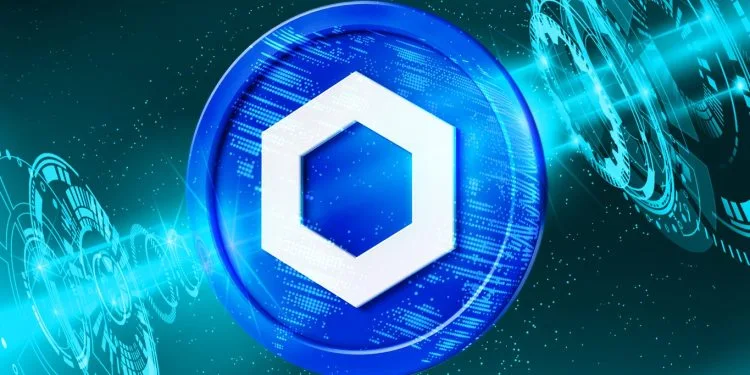
Introduction
Developers building Web3 applications are faced with a series of challenging hurdles - selecting the appropriate blockchain, maximizing security, and integrating off-chain data into their smart contracts using oracle platforms like Chainlink.
Looking for a Chainlink oracle, oracle address, or job id?
View our Chainlink data feeds documentation, which has everything you need to get started requesting data from our reliable, distributed oracle infrastructure.
At LinkWell Nodes, we understand the inherent challenge in staying up-to-date on Chainlink's service offerings, as well as the considerable difficulty in finding and collaborating with the appropriate Chainlink node operator. In this article, we aim to use our extensive experience running Chainlink oracles to help clarify these unknowns.
In this article we will cover:
** Why Chainlink? **
Blockchain consensus mechanisms limit smart contracts from directly interacting with the internet, creating the blockchain oracle problem. This hurdle represents one of the greatest limitations to representing everyday contracts on the blockchain.
Hybrid smart contracts solve this by using oracles as middleware - enabling external data publishing & retrieval, and scalable off-chain computations. Oracles act as a two-way bridge, enhancing connectivity while providing security against single points of failure.
Chainlink - the industry standard Web3 services platform - is the most widely used decentralized oracle network, securing significant value across a diverse assortment of blockchains and use cases. It operates as an ecosystem with independent decentralized oracle networks, guaranteeing robust and versatile oracle services.
What is a Chainlink oracle (node operator)?
A Chainlink node operator is a crucial part of the Chainlink network, tasked with the secure and reliable transfer of real-world data to blockchains. These operators develop and maintain their own off-chain infrastructure, which effectively serves as a bridge between external data sources (internet-based APIs), and blockchains. This crucial connection enables bi-directional communication between smart contracts and the outside world.
At the heart of this system is the Chainlink oracle - a runtime developed in Go by Chainlink Labs. Oracles form the backbone of decentralized oracle networks (DONs), which supply off-chain data and computational resources to support a wide range of Chainlink's functionalities, including Data Feeds, Automation, VRF, and the Cross-Chain Interoperability Protocol (CCIP). The Chainlink network is an expandable ensemble of independent oracles. While anyone can run their own singular Chainlink oracle, decentralized oracle networks can impose their own rules regarding access and data handling. Unlike typical blockchain environments, the Chainlink network does not employ a unified consensus mechanism, thereby allowing for greater flexibility (and decentralization) among its networks.
While individual Chainlink oracles can directly handle requests (ie, using the Any API / basic request model), they may also form decentralized oracle networks (DONs). These networks aggregate responses from multiple oracles and data sources, ultimately providing a highly secure, accurate, and reliable data feed.
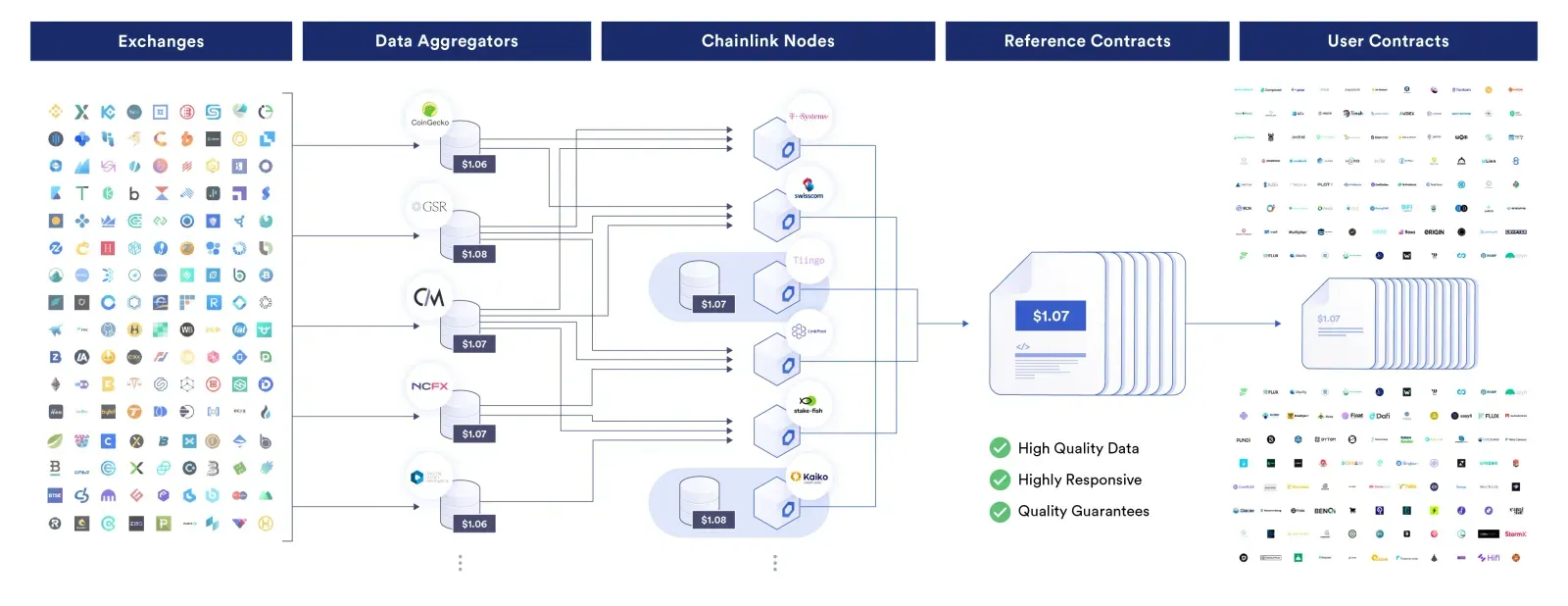
Why do I need a Chainlink oracle?
It would be natural to question at this point - if Chainlink oracles can offer their services via decentralized oracle networks, why would there be any need to interact with a single Chainlink oracle?
There are many reasons why interacting directly with a Chainlink node operator (oracle) can be extremely beneficial - or even necessary:
1. Direct API Calls: Web3 developers can incorporate request logic within their smart contracts that execute API calls via a Chainlink oracle, allowing them to access data from any external data source on the internet. This process necessitates an oracle address and a job id, both of which are provided by a Chainlink node operator (see our documentation for these).
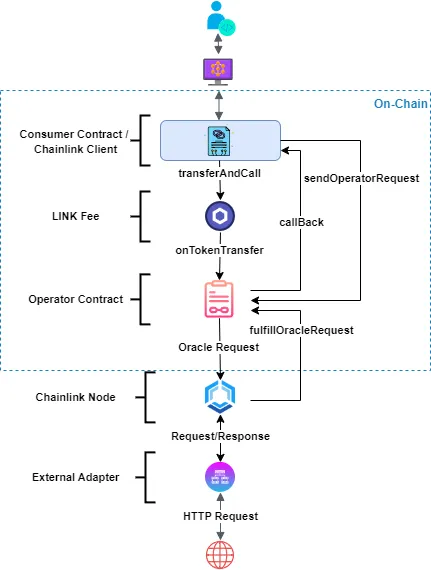
2. Lower Costs: Working directly with a single Chainlink node operator can often be cheaper for your project than working with many. Speaking directly with your Chainlink node operator allows you to arrive at a price point that works for you. Some operators (such as ourselves) also provide discounts for high request volume, paying in advance, and alternative payment methods for certain Web3 startups.
3. Unique Data/Price Feeds: Chainlink provides a diverse selection of official data feeds, encompassing various data types like asset prices, reserve balances, NFT floor prices, and more. While these data feeds cover a broad spectrum, Web3 developers often require data that goes beyond Chainlink's existing official data feed offerings. To cater to these specialized needs, Chainlink node operators can create custom price feeds that can aggregate custom data such as low-cap asset prices, RWA (real-world asset) prices, stock prices, weather information, sports betting data, and proof-of-reserve information.
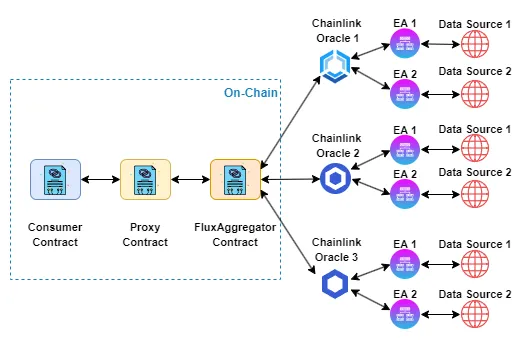
Chainlink node operators can easily assist in developing your custom data feed, enabling Web3 developers to design and build their own decentralized oracle networks (DONs). These networks can be customized with specific update thresholds to aggregate data for virtually any use case.
4. Full-Service Support: Working directly with a node operator means a vastly-improved customer experience - especially for teams with limited technical expertise with blockchain oracles. A node operator can provide a wide range of services, including customer support, assistance integrating your smart contract, external adapter development, and monitoring / alerting you to potential issues.
5. Reduced Technical Complexity: The intricacies of building Web3 apps can be daunting. An experienced node operator team can provide you with the necessary guidance and support needed to navigate complex issues and technical decisions in integrating your contract safely with your external data.
6. Navigating Service Limitations: Every blockchain (and Chainlink service offering) has its own inherent limitations - from gas limits to block times to payload sizes. A skilled Chainlink node operator can help you effectively navigate these challenges, providing alternative options and bespoke customer solutions where necessary.
Where to find a Chainlink oracle
While there is no centralized directory of Chainlink node operators, there are several methods we recommend for finding one:
-
Node Operator Websites: Visiting the websites of various Chainlink oracles can offer a comprehensive view of their services offerings and expertise. A quick Google search for "Chainlink oracle job ids" may yield several results.
LinkWell Nodes offers professional Chainlink oracle services on all major EVM mainnet and testnet blockchains.
To view a directory of our oracle addresses and job IDs, please feel free to view our Chainlink data feeds documentation.
-
Chainlink Discord server: Engaging with the Chainlink community in Chainlink's official Discord server is another great option for finding a Chainlink node operator who can serve your Web3 data needs.
-
Social Media: Many Chainlink oracles are active on social media channels such as X, LinkedIn, and Discord.
-
Analytics Platforms: Various independent websites such as LinkPool's Dune Analytics or Dextrac's Prism application offer detailed information on the performance of the Chainlink Network, each decentralized oracle network, various node operators, and more.
What to look for in a Chainlink oracle
Trust is fundamental when working with a single Chainlink node operator - especially given the critical role that external data plays in smart contracts.
Some of the key considerations to look for when finding a Chainlink node operator (oracle) are:
-
Reputation: In a decentralized environment, a node operator's reputation for honesty and quality of service matters. Developers should choose Chainlink node operators with proven track records of excellent customer service.
-
Reliability and Uptime: Reliable service is vital for applications needing real-time data, such as trading, lending, and DeFi insurance protocols. Look for a Chainlink node operator with a well-defined SLA regarding their service and downtime.
-
Security: Chainlink node operators manage sensitive data and may be the target of data breaches. Chainlink node operators should employ strong security measures to protect your data pipeline, and to prevent leaks that could jeopardize the blockchain ecosystem.
-
Compliance and Legal Considerations: Trustworthy node operators should comply with legal and regulatory standards, critical in areas with strict data and privacy laws. This compliance prevents legal issues and ensures proper data handling.
Some additional factors to consider are:
-
Effective Communication: Clear, transparent communication is essential for maintaining a seamless integration with Chainlink services, ultimately ensuring project success.
-
Community Engagement: Do they have a history of supporting the Chainlink community, and working with other Web3 projects? If not, they may not be the most suitable to work with.
-
Clear Processes and Documentation: We've all experienced the dread of poor documentation and/or processes when trying to navigate a new technology. An oracle with clear documentation can make all the difference.
Working with a knowledgeable and competent Chainlink node operator can greatly streamline the process of requesting and building a custom data feed or Any API request pipeline, allowing you or your team to allocate resources more efficiently to your Web3 application. Furthermore, Chainlink node operators should ideally possess the expertise to assist in crafting your smart contract code, conducting code reviews, and suggesting gas optimization strategies within your smart contract. This not only saves time, but can also preserve valuable funds with each data request to the Chainlink oracle.
At LinkWell Nodes, we pride ourselves in delivering a top-tier, transparent, full-service customer experience.
Have a question about your Web3 project? Join our Discord server for the fastest assistance.
Bonus: Chainlink's vision for a Decentralized Compute Marketplace (DCM)
At the 2023 SmartCon, Sergey Nazarov shared his vision for Chainlink to develop a Decentralized Compute Marketplace (DCM). This marketplace would enable users to allocate a security budget and obtain data, computation, and security services based on that budget. Such a development would make it easier for developers to establish custom DONs in order to integrate with Chainlink's comprehensive suite of Web3 services.
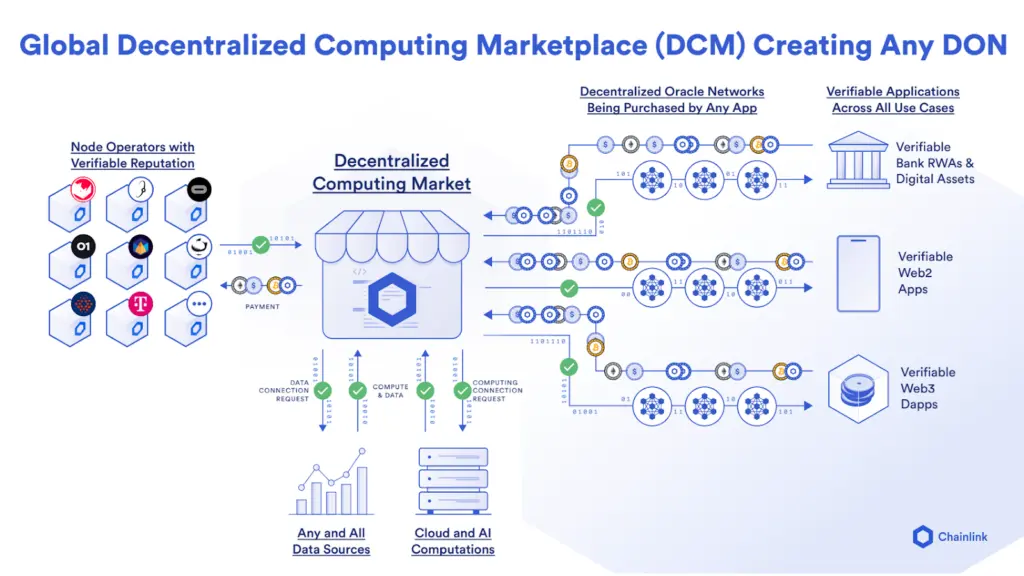
Although the specifics of how the DCM will function remain uncertain, it seems likely that developers will have the option to choose not only the number of Chainlink oracles to service their DON, but also select which Chainlink oracles are part of the DON. Should Chainlink adopt this approach for the DCM, it will be important to understand the detailed metrics and information about each Chainlink node operator - as explored in this article.
Conclusion
The journey to finding a suitable Chainlink oracle involves many challenges, including understanding the Chainlink ecosystem as a whole, and finding a Chainlink node operator that works for you.
Understanding your project's specific needs, exploring various sources for potential candidates, and evaluating them based on performance metrics and other criteria, are some of the key challenges faced when finding a node operator.
The right operator will not only ensure the seamless integration of external data within your smart contract, but also save you time (and money), thereby contributing to the overall success of your Web3 project.
LinkWell Nodes is a U.S.-based Chainlink community oracle, providing custom data feed capabilities and self-service oracle solutions across virtually all major mainnet and testnet blockchains supported by Chainlink.
Looking for a custom data feed? Head on over to our documentation, or hop into the LinkWell Nodes Discord server and ask for help!
Disclaimer: all views and opinions expressed in this article are strictly our own.
